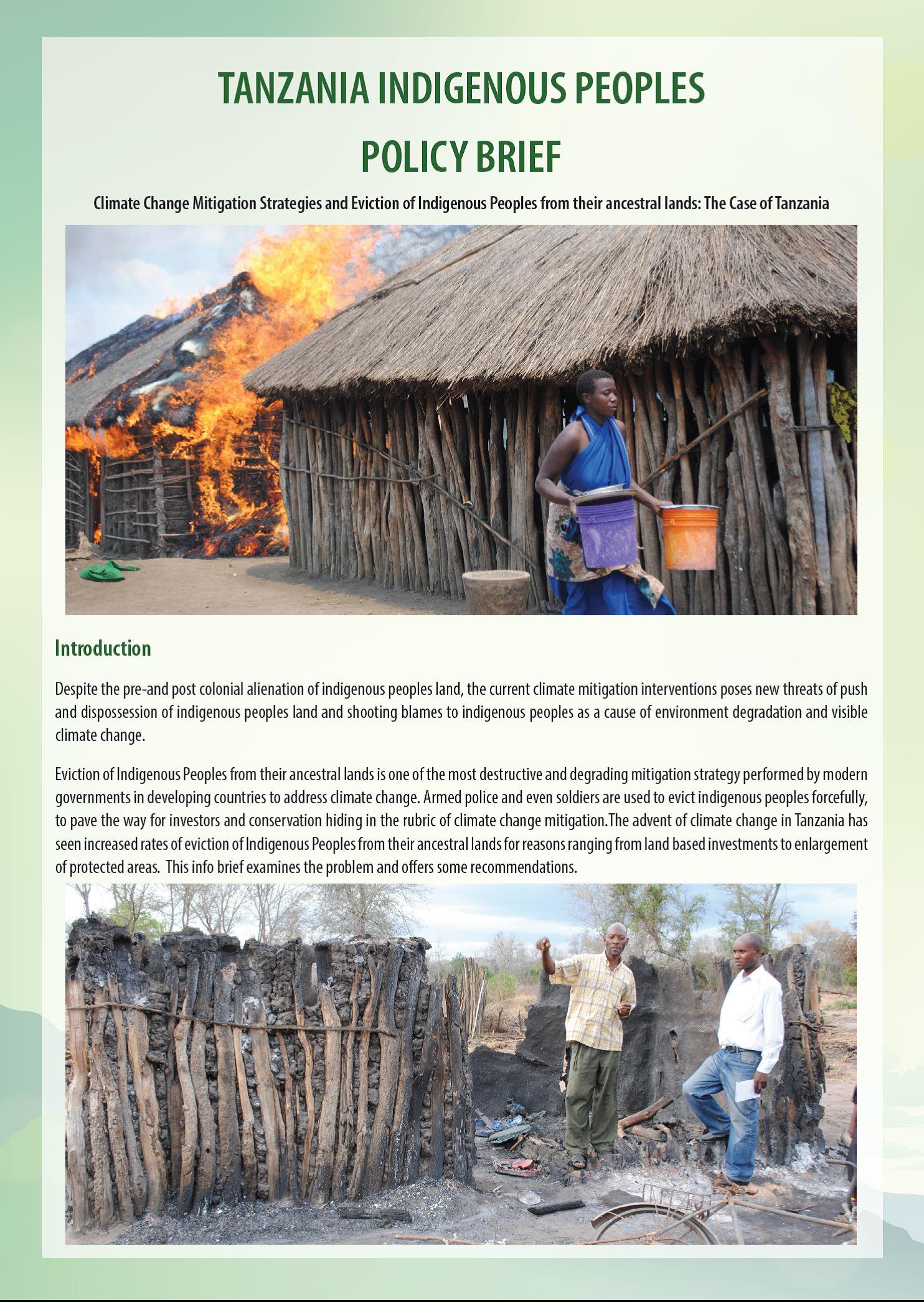accès à la terre
AGROVOC URI:
Accès à l’espace rural et administration des terres après des conflits violents
Le présent guide intitulé « Accès à l’espace rural et administration des terres après des conflits violents » a été élaboré pour aider les spécialistes concernés à remettre sur pied les régimes fonciers et l’administration foncière dans les pays émergeant de conflits violents. Il est particulièrement difficile, dans de telles situations, d’assurer un accès sans danger à la terre. Les conflits violents entraînent généralement le déplacement d’une grande partie de la population. À l’issue du conflit, certains de ceux qui regagnent leur foyer trouvent leur bien occupé par d’autres.
Intra-rural migration and pathways to greater well-being: Evidence from Tanzania
Migration between rural locations is prevalent in many developing countries and has been found to improve economic well-being in sub-Saharan Africa. This paper explores the pathways through which intra-rural migration affects well-being in rural Tanzania. Specifically, we investigate whether such migration enables migrants to access more land, higher quality land, or greater off-farm income generating opportunities that may, in turn, translate into improved well-being.
Pour une meilleure gouvernance des terres
Document de travail sur les régimes fonciers 11. Cette publication conjointe entre la FAO et UN-HABITAT cherche à améliorer et à mieux définir les processus, mécanismes et institutions de gouvernance foncières dans les zones rurales et urbaines. Ce document, tout en soulignant l’excellence des politiques, législations et réformes techniques foncières, en termes d’élaboration, relève toutefois un certain nombre de problèmes de mise en œuvre, en constatant des glissements, des interruptions, voire même des inversions.
Good Governance and Natural Resources Tenure in South East Asia Region
This document analyzes the responsible governance of tenure of land and other natural resources in South East Asia. It exposes common, regional challenges and identifies ways forward in order to improve governance in land management and administration.
趋向负责任土地及其他自然资源 权属治理自愿准则
土地权属及管理处 10. 本讨论文件由粮农组织土地权属及管理处起草,目的是为了征求对负责任 的土地和其他自然资源权属治理自愿准则的看法和意见。衰弱的权属治理可导 致生命和生计损失,阻碍投资和经济的全面增长,并妨碍自然资源的可持续利 用。相比之下
Buena gobernanza y tenencia de recursos naturales en Europa oriental y en la CEI
Documento de trabajo sobre tenencia de la tierra 3. Este documento ofrece una reflexión sobre la situación, las políticas y las tendencias de la gobernanza en Europa Oriental y en la Comunidad de Estados Independientes (CEI). Este estudio realiza una evaluación sobre el estado de la gobernanza así como la capacidad de los diferentes países para contribuir a la elaboración de las Directrices de la FAO sobre gobernanza responsable de la tenencia de la tierra y otros recursos naturales. PDF Disponible solo en inglés
Climate change and land tenure
Land Tenure Working Paper 2. This document analyzes the implications for land tenure and land policy of climate change. It assesses the implications of ongoing anthropogenic climate change resulting from greenhouse gas emissions for land tenure and the role that land policy can play in climate change adaptation planning in the developing world.
Gender and Land Rights
Increasing women’s access to land is crucial to fight hunger and poverty. However, gender disparities in land access remain significant in most countries, regardless of their level of development. A new FAO database helps to understand the factors that prevent women from accessing land; and to design better policies to effectively address this situation.
Land tenure alternative conflict management
This training manual focuses on how to manage and resolve conflicts over land tenure rights, security of tenure and land access in the field of rural development. It results from complementary activities undertaken within FAO's Livelihood Support Programme (LSP) and the Land Tenure and Management Unit and with the International Land Coalition. It addresses the specific issues of land tenure identified in the volume Negotiation and Mediation Techniques for Natural Resource Management published by the LSP.
Climate Change Mitigation strategies and evictions of indigenous peoples from their ancestral land.
Eviction of Indigenous Peoples from their ancestral lands is one of the most destructive and degrading mitigation strategy performed by modern governments in developing countries to address climate change. Armed police and soldiers are used to forcefully evict indigenous peoples to pave the way for investors and conservation in the name of climate change mitigation.

